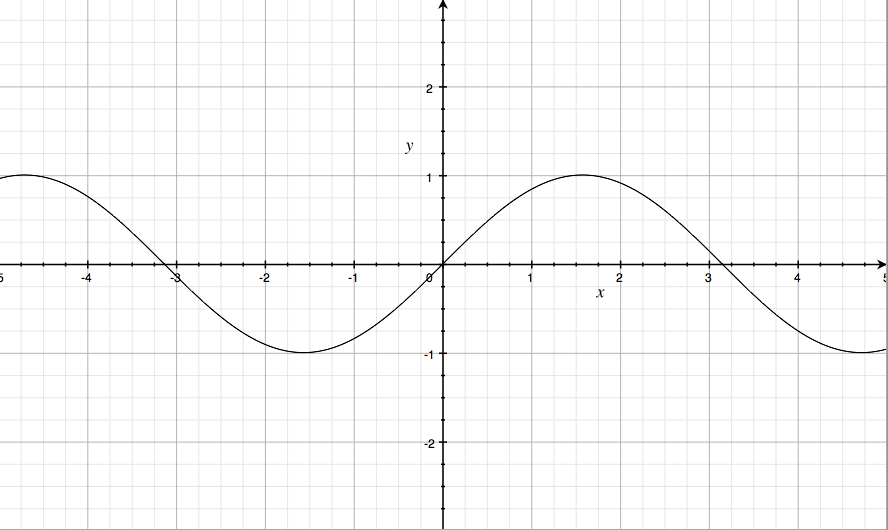(→Non-Periodic Signal) |
|||
| Line 1: | Line 1: | ||
| + | [[Category:ECE301]] | ||
| + | [[Category:periodicity]] | ||
| + | =Periodic versus non-periodic functions ([[Homework_1_ECE301Fall2008mboutin|hw1]], [[ECE301]])= | ||
| + | <span style="color:green"> Read the instructor's comments [[hw1periodicECE301f08profcomments|here]]. </span> | ||
| + | |||
A continuous time signal x(t) is periodic if there exists T such that x(t + T) = x(t) for all t. <br> | A continuous time signal x(t) is periodic if there exists T such that x(t + T) = x(t) for all t. <br> | ||
A discrete time signal x[n] is periodic if there exists some integer N such that x[n + N] = x[n] for all n. <br> | A discrete time signal x[n] is periodic if there exists some integer N such that x[n + N] = x[n] for all n. <br> | ||
Latest revision as of 07:28, 14 April 2010
Periodic versus non-periodic functions (hw1, ECE301)
Read the instructor's comments here.
A continuous time signal x(t) is periodic if there exists T such that x(t + T) = x(t) for all t.
A discrete time signal x[n] is periodic if there exists some integer N such that x[n + N] = x[n] for all n.
Periodic Signal
Let x(t) = sin(t), as seen below.

For x to be periodic, there must be a T such that x(t + T) = x(t) for all t.
Since the sine wave repeats itself every π, it is periodic.
Non-Periodic Signal
Let $ x[n] = e^{jn} $.
For x[n] to be periodic, there must be an N such that x[n + N] = x[n].
This only holds true if $ N = 2\pi $ or some multiple of $ 2\pi $
Thus $ x[n] = e^{jn} $ is not periodic because $ 2\pi $ is not an integer.

